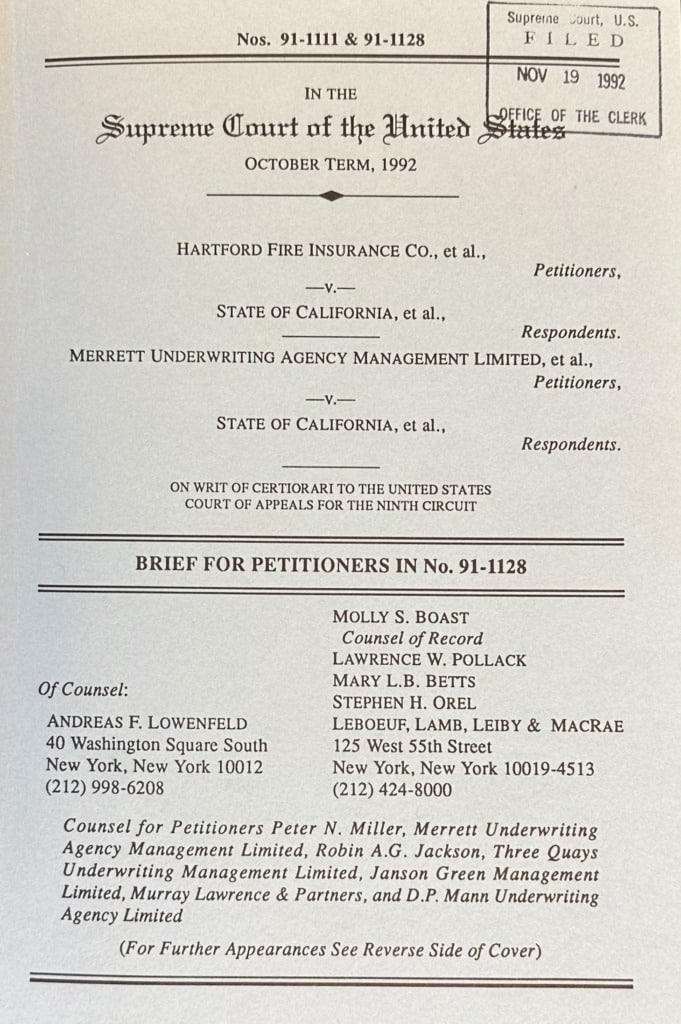Foreign state compulsion (also called foreign sovereign compulsion) is a doctrine allowing a U.S. court to excuse violations of U.S. law on the ground that they are compelled by foreign law. The doctrine arises most often when foreign law blocks compliance with U.S. discovery requests and in certain substantive areas like antitrust law. It generally requires the risk of severe sanctions under foreign law and a good faith effort by the person in question to avoid the conflict.
A Primer on Foreign State Compulsion
Foreign state compulsion (also called foreign sovereign compulsion) is a doctrine allowing a U.S. court to excuse violations of U.S. law or moderate the sanctions imposed for such violations on the ground that they are compelled by foreign law. The doctrine arises most often when foreign law blocks compliance with U.S. discovery requests and in…
Continue ReadingThrowback Thursday: Hartford Fire Insurance Co. v. California
Thirty years ago next week, the Supreme Court addressed the extraterritorial reach of U.S. antitrust laws in Hartford Fire Insurance Co. v. California. The Court reiterated that the Sherman Act applies to anticompetitive conduct abroad that causes substantial intended effects in the United States, but it divided sharply over the role of “international comity.” Writing…
Continue ReadingCert Petition Challenges Second Circuit’s Comity Abstention Doctrine
A cert petition filed with the Supreme Court on March 21, 2022 challenges the doctrine of prescriptive comity abstention. The Second Circuit used this doctrine to reverse a $147 million antitrust judgment against Chinese companies for fixing the price of vitamin C sold into the United States. The Second Circuit’s decision relies on the kind…
Continue Reading
